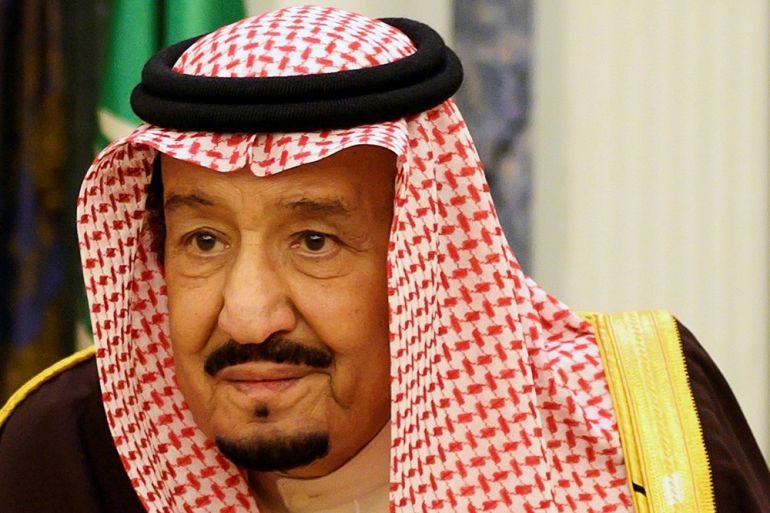
- Medical Tests Scheduled for the 88-Year-Old Monarch
King Salman of Saudi Arabia is currently experiencing a lung infection and is set to undergo medical tests, as announced by the Royal Court on Sunday night. The official statement, released through the Saudi Press Agency, noted that the king’s medical evaluations are in response to recommendations from royal clinics.
- King Salman’s Health Background
At 88 years old, King Salman has been the reigning monarch since 2015. His son, Mohammed bin Salman, who was named crown prince in 2017, effectively manages the kingdom’s daily affairs. Over the years, the Saudi government has consistently sought to manage public speculation regarding the king’s health.
- Recent Health Developments
In May, the Royal Court revealed that King Salman was undergoing a treatment program involving antibiotics after a hospital admission for tests. He was reported to have made a swift recovery. Prior to that, he was hospitalized for “routine examinations” but was discharged later the same day.
The king’s health history includes a hospitalization in May 2022 for a colonoscopy and other tests, which required a stay of just over a week for additional rest. Earlier that year, in March, he underwent “successful medical tests” and had the battery of his pacemaker replaced. Additionally, in 2020, he had surgery to remove his gallbladder.
- Speculation Surrounding Abdication
Despite ongoing speculation about his health, Riyadh has firmly dismissed rumors regarding any plans for King Salman to abdicate in favor of Crown Prince Mohammed. The king has had a long-standing career in public service, previously serving as the governor of Riyadh and as defense minister.
- Vision for the Future
King Salman’s reign has been characterized by ambitious economic and social reforms, largely orchestrated by Crown Prince Mohammed. These initiatives aim to diversify the Saudi economy and prepare for a future beyond oil dependency. However, the prince’s tenure has also involved a rigorous crackdown on dissent, which analysts believe has further consolidated his power.
The health of King Salman remains a subject of interest, as the world watches the impact of his condition on Saudi Arabia’s leadership and future direction.
Sure! Here’s a deeper look into King Salman’s health, his reign, and the implications for Saudi Arabia:
- King Salman’s Health
King Salman bin Abdulaziz Al Saud, who ascended to the throne in January 2015, has faced several health challenges over the years. His age, at 88, naturally raises concerns about his well-being and ability to fulfill royal duties. The recent lung infection has brought attention to his health status, prompting the Royal Court to announce medical tests. Historically, the Saudi government has been reticent about the king’s health, often limiting public disclosures to avoid speculation and maintain stability.
- Recent Health Incidents
– **Previous Hospitalizations:** King Salman has had multiple hospital visits, including for routine examinations and more serious health concerns like colonoscopies and gallbladder surgery. These incidents highlight the challenges of an aging monarch, as well as the importance of transparency in addressing public concern over leadership stability.
– **Treatment Programs:** His treatment regimens have included antibiotics and other medical interventions, suggesting ongoing health management needs. The pattern of hospitalization and recovery indicates that while he may face health issues, he has also shown resilience and the ability to recover quickly.
- Leadership and Governance
– **Crown Prince Mohammed bin Salman:** Since being appointed crown prince, Mohammed bin Salman (often referred to as MBS) has largely taken on the day-to-day governance of Saudi Arabia. His ambitious Vision 2030 initiative aims to diversify the economy away from oil dependency and modernize various sectors, including tourism and entertainment.
– **Social and Economic Reforms:** Under King Salman and Crown Prince Mohammed’s leadership, Saudi Arabia has seen significant reforms, including changes to women’s rights, economic diversification efforts, and increased foreign investment. These initiatives are crucial for the kingdom’s future, especially as global oil demand fluctuates.
- Political Stability and Succession
– **Managing Succession:** King Salman’s health issues have raised questions about succession and stability within the Saudi royal family. While there have been rumors of potential abdication, the government has consistently dismissed these claims. The management of succession is pivotal, as any uncertainty can impact both domestic and international perceptions of Saudi Arabia.
– **Consolidation of Power:** MBS’s governance style has been characterized by a crackdown on dissent, which some analysts view as a method of consolidating power. This approach has garnered both domestic criticism and international scrutiny, particularly regarding human rights issues.
The health of King Salman is not just a personal matter but has broader implications for Saudi Arabia’s political landscape and its role in global affairs. Should his health decline significantly, it could lead to increased speculation about the future leadership of the kingdom, the continuity of reforms, and the management of internal and external relations.
In summary, King Salman’s health is closely monitored, given his age and the critical role he plays in Saudi governance. The interplay between his health, the crown prince’s management of state affairs, and ongoing reforms will be vital in shaping the future of Saudi Arabia.